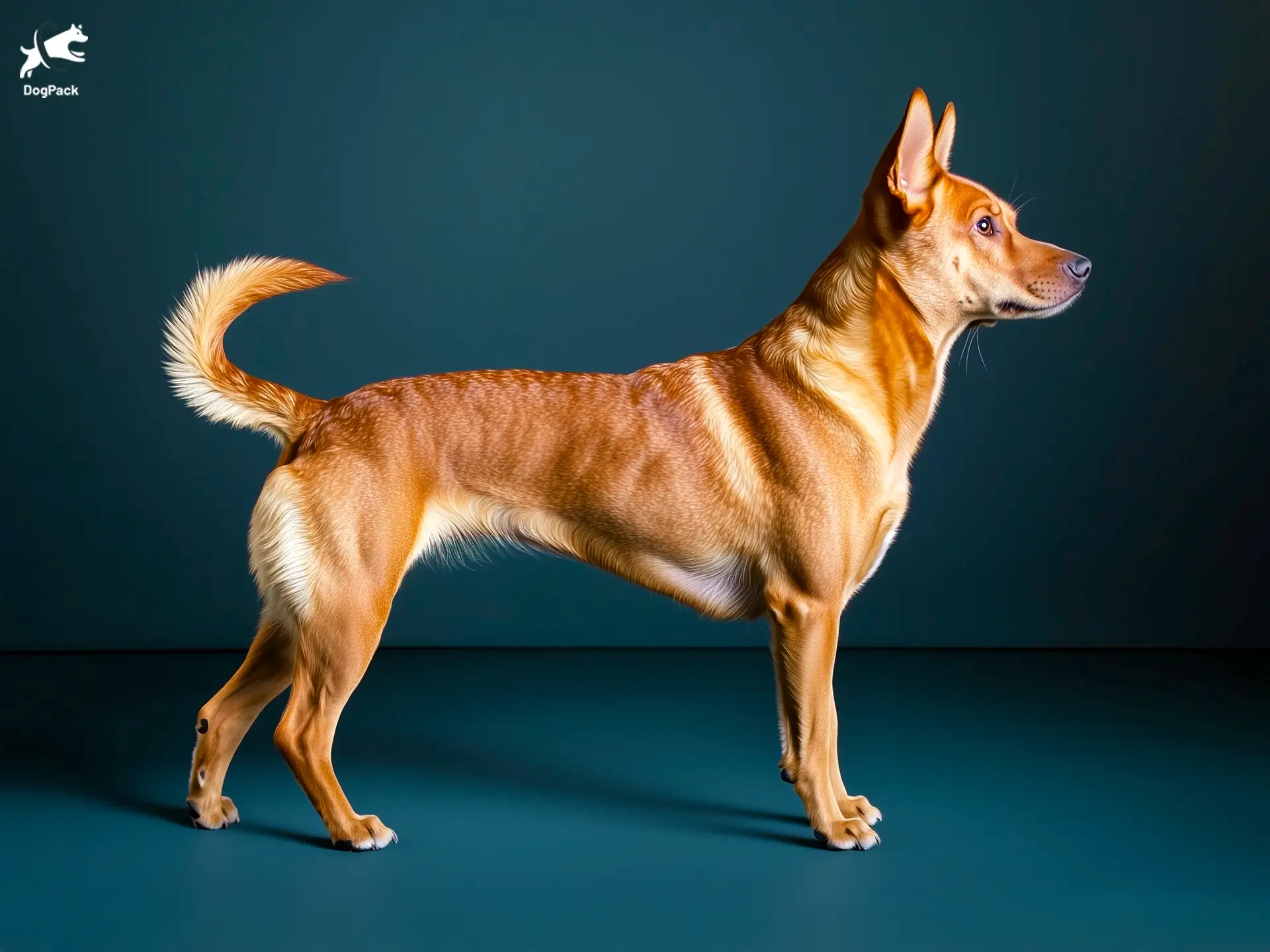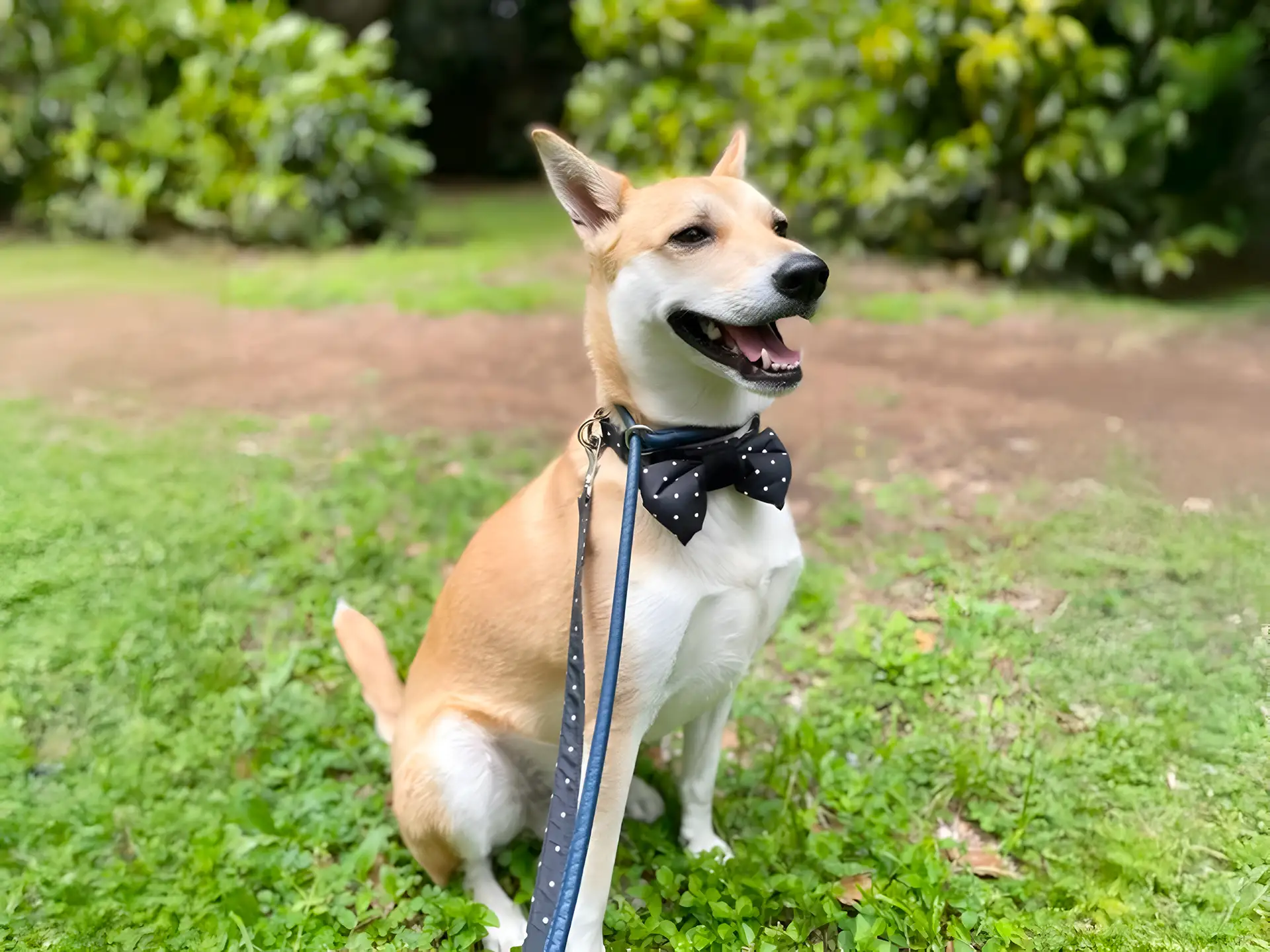Carolina Dog Breed Info & Overview
The Carolina Dog, often resembling a creature from the wild, is a fascinating and rare breed native to the American Southeast. With its blend of primitive instincts and a gentle, family-friendly personality, this breed is as unique as it is loyal. Curious and adaptable, the Carolina Dog brings a touch of the untamed spirit to any home while being a devoted companion.
Characteristics
Pictures
Breed History
Believe it or not, the Carolina Dog’s history reads like an adventure novel. Discovered roaming freely in the American Southeast, this breed is believed to be a descendant of ancient dogs that crossed the Bering land bridge with early humans. Their wild roots make them a living piece of history right in our backyards.
Archaeological findings have linked the Carolina Dog to Native American dogs depicted in ancient artifacts. These dogs survived in the wild for centuries, adapting to the swampy lowlands and dense forests of the Carolinas. Their ability to thrive without human intervention speaks volumes about their resilience and adaptability.
It wasn’t until the 1970s that the Carolina Dog was officially recognized. Dr. I. Lehr Brisbin Jr., an ecologist, stumbled upon these dogs and noticed their unique traits. His studies led to the breed’s formal acknowledgment, preserving a canine lineage that’s as old as America itself.
Temperament, Personality
If you’re looking for a dog with a dash of wilderness and a heart of gold, the Carolina Dog might just be your match. They’re known for their loyalty and strong pack instincts, making them devoted family members. However, their independent nature means they can be a bit reserved, especially around strangers.
When it comes to kids, Carolina Dogs are generally gentle but may require proper socialization to feel comfortable. Their cautious demeanor means they observe before jumping into playtime. With patience and positive experiences, they can become wonderful companions for older children who understand canine cues.
As for other pets, their high prey drive can be a challenge. Small animals might trigger their hunting instincts. Early socialization is key to helping the Carolina Dog coexist peacefully with other dogs and possibly even cats, though supervision is always recommended.
Physical Characteristics
The Carolina Dog sports a sleek, medium-sized build that’s built for agility and endurance. Their short to medium-length coat comes in shades of ginger, buff, or tan, often with pale markings on the muzzle and over the shoulders—a nod to their wild ancestors.
One of their most distinctive features is their upright, pointed ears that seem ever-alert to the sounds of the wild. Their almond-shaped eyes, usually dark brown, give them a keen and intelligent expression. The tail is another standout—it’s long, curved, and often carried in a fishhook shape.
Don’t be surprised if the Carolina Dog reminds you of a dingo or a wild dog—that’s part of their charm. Their lean physique and strong legs make them excellent runners, perfectly adapted to traversing various terrains. This breed is truly a blend of natural beauty and functional design.
Health Issues
Carolina Dogs are generally a healthy and hardy breed, thanks to their natural selection in the wild. However, they can be prone to some genetic health issues like hip dysplasia and patellar luxation. Regular veterinary check-ups can help catch these conditions early.
Another concern can be heartworms, especially if they spend a lot of time outdoors. Preventive medications are essential to keep the Carolina Dog safe from parasites. Their natural resilience doesn’t make them immune, so proactive care is important.
Maintaining a balanced diet and regular exercise will contribute to their overall well-being. Dental hygiene shouldn’t be overlooked either; brushing their teeth regularly can prevent periodontal disease. With proper care, your Carolina Dog can enjoy a long, healthy life.
Grooming Needs
Good news for those who aren’t fans of constant grooming—the Carolina Dog is relatively low-maintenance. Their short to medium coat sheds seasonally, so a weekly brushing is usually sufficient to keep their fur in top shape. During shedding seasons, you might want to brush more frequently to manage loose hair.
Bathing doesn’t need to be a frequent affair unless they’ve gotten into something messy. Their coat has natural oils that keep it healthy, so over-bathing can strip these essential oils away. A bath every few months or when necessary will do the trick.
Don’t forget about nail trimming and ear cleaning. The Carolina Dog’s active lifestyle means their nails can wear down naturally, but it’s good to check them regularly. Cleaning their ears will prevent infections, especially since their upright ears are more exposed to the elements.
Exercise Requirements
An active breed at heart, the Carolina Dog thrives on regular exercise. Aim for at least 1–2 hours of physical activity each day to keep them mentally and physically stimulated. Without adequate exercise, they might channel their energy into unwanted behaviors.
Activities like hiking, running, or even agility training suit them well. Their natural instincts make them excellent companions for outdoor adventures. The Carolina Dog loves exploring, so varying their routine can keep them engaged and happy.
Don’t underestimate the power of mental stimulation. Puzzle toys and scent games can challenge their intellect. Incorporating training sessions into playtime not only exercises their body but also strengthens your bond with your Carolina Dog.
Training Tips
Training a Carolina Dog can be both rewarding and challenging. Their intelligence is a double-edged sword—they learn quickly but may also get bored with repetitive tasks. Positive reinforcement methods work best, as they respond well to treats and praise.
Consistency is key. The breed’s independent streak means they might test boundaries, so establishing clear rules from the start is important. Early socialization will help them become more comfortable around strangers and other animals.
Avoid harsh training methods; these can backfire and make the Carolina Dog more stubborn. Keep sessions short and engaging to maintain their interest. Remember, patience and a gentle approach will yield the best results with this unique breed.
Nutrition, Diet
Feeding a Carolina Dog requires attention to their active lifestyle and natural dietary tendencies. High-quality, protein-rich dog food is essential to meet their energy needs. Consider foods that mimic a more ancestral diet, including lean meats and limited grains.
Portion control is crucial. For an average Carolina Dog weighing around 40 pounds (18 kg), 2 to 2.5 cups of kibble per day, divided into two meals, is a good starting point. Adjust the amount based on their activity level and consult your vet for personalized advice.
Some owners opt for a raw or BARF (Biologically Appropriate Raw Food) diet to align with their natural instincts. If considering this route, it’s important to work with a veterinary nutritionist to ensure all nutritional needs are met. The Carolina Dog’s unique background makes dietary considerations an important aspect of their care.
Adoption, Breeders
Finding a Carolina Dog might require a bit more effort due to their rarity. Start by reaching out to breed-specific rescue organizations like the Carolina Dog Rescue and Adoption and Carolina Dogs Matter. They specialize in this breed and can help match you with the right companion.
If you prefer a puppy from a breeder, ensure they are reputable and prioritize the health and well-being of their dogs. The American Rare Breed Association is a good resource for finding registered Carolina Dog breeders who adhere to ethical breeding practices.
Always ask for health clearances and visit the breeder’s facility if possible. Given the Carolina Dog’s unique traits, it’s important to find a breeder or rescue that understands the breed thoroughly. This ensures you’re getting a healthy dog and supports responsible breeding and adoption practices.
Family Pet?
The Carolina Dog can make a wonderful family pet for the right household. Their loyalty and pack mentality mean they form strong bonds with their human families. However, they may be better suited for families with older children who understand how to interact respectfully with dogs.
Because of their high prey drive, caution is advised around smaller pets. With proper socialization and supervision, they can coexist with other dogs. The Carolina Dog’s cautious nature means they might take time to warm up, but patience pays off.
An active family that enjoys outdoor activities will find a great companion in the Carolina Dog. They thrive in environments where they can explore and be part of the family’s daily routines. Their unique blend of wild instincts and affectionate nature makes them a special addition to the right home.
Right For You?
Before bringing a Carolina Dog into your life, consider your lifestyle. Are you active and enjoy spending time outdoors? Do you have the patience for training and socializing a breed with a wild heritage? If so, this might be the perfect canine companion for you.
Apartment living isn’t ideal for this breed due to their need for space and exercise. A home with a securely fenced yard allows the Carolina Dog to roam and satisfy their curiosity safely. They do best in rural or suburban settings.
Ultimately, the Carolina Dog is for those who appreciate a unique breed with deep historical roots. If you’re willing to invest time and energy into meeting their needs, you’ll be rewarded with a loyal, intelligent, and truly one-of-a-kind friend.
Conclusion
Choosing the Carolina Dog means embracing a piece of living history. Their blend of wild instincts and domesticated charm offers a unique companionship experience. While they may require more attention in training and socialization, the rewards are immense for those willing to put in the effort. If you’re an active individual or family seeking a loyal and fascinating canine companion, the Carolina Dog could be the perfect match. Their intelligence, agility, and affectionate nature make them a breed like no other.
FAQs
-
Are Carolina Dogs good for first-time dog owners?
Carolina Dogs may not be ideal for first-time owners due to their independent nature and need for consistent training. They benefit from experienced handlers who understand canine behavior and can provide the structure they require.
-
Do Carolina Dogs howl like other wild canines?
Yes, the Carolina Dog is known to howl, especially when in groups or responding to certain sounds. This vocalization is part of their primitive traits and can be a charming, if sometimes surprising, aspect of their behavior.
-
Can Carolina Dogs adapt to cold climates?
While originally from the warmer climates of the Southeast, Carolina Dogs can adapt to colder environments if given proper shelter and care. Their coat provides moderate protection, but they may need additional warmth during extreme cold.
-
What kind of games do Carolina Dogs enjoy?
Carolina Dogs love games that stimulate their minds and bodies. Activities like fetch, hide-and-seek, and puzzle toys engage their natural instincts. Agility courses and scent tracking can also be enjoyable for this intelligent breed.
-
Are Carolina Dogs recognized by major kennel clubs?
The Carolina Dog is recognized by the United Kennel Club (UKC) but not by the American Kennel Club (AKC). Their status as a rare and primitive breed contributes to their limited recognition in traditional kennel circles.
Breed Ratings
The Carolina Dog is intelligent and quick to learn but may be independent-minded, requiring consistent training approaches.
They enjoy playtime but may not be overly boisterous; their play is often thoughtful and engages their instincts.
With a moderate to high energy level, they thrive on daily exercise and mental stimulation to prevent boredom.
Shedding is moderate, increasing seasonally; regular brushing helps manage loose hair.
High prey drive due to their wild ancestry; caution is needed around small animals.
Their short coat requires minimal grooming, making upkeep relatively simple.
Trainable but can be stubborn; responds best to positive reinforcement and consistent methods.
They prefer company and may become anxious if left alone for extended periods.
Moderate vocalization; may howl in response to sounds or when communicating.
Minimal drooling, which is a plus for those who prefer a cleaner dog.
Can be friendly with other dogs if properly socialized; supervision is recommended.
Generally healthy with few breed-specific issues; regular vet care ensures they stay in good shape.














